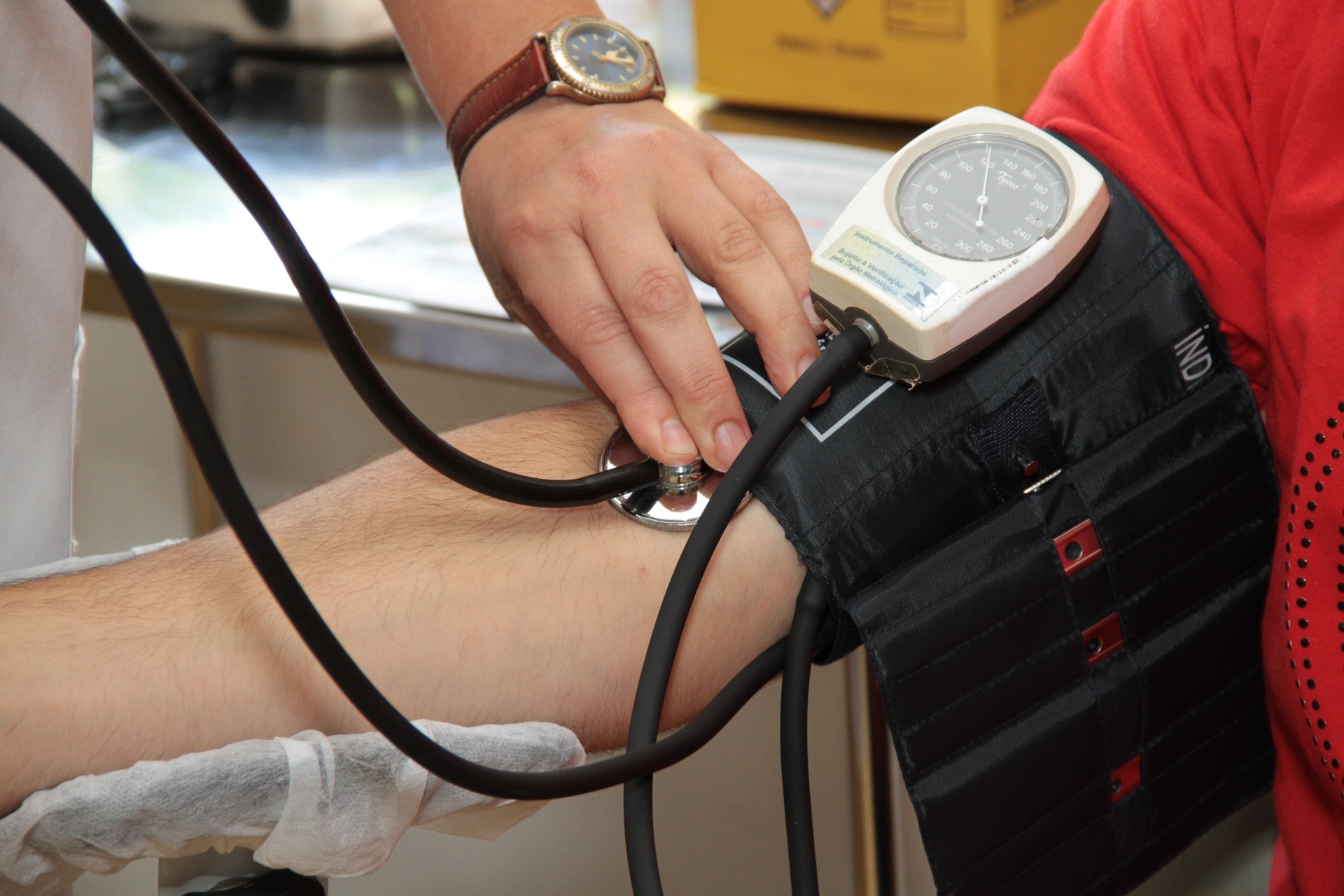Transparency is extremely important to us, so we are letting you know that we may receive a commission on some of links you click on from this page. See our disclaimer.
One of the key roles for a well-run workplace wellness program is to help with the prevention and management of chronic disease.
And one disease that in some cases can be helped through prevention activities is hypertension.
Indeed, when WGN radio recently asked Interactive Health President & CEO Cathy Kenworthy, “What would you say are the biggest health problems, the biggest wellness problems or impacts that are affecting people these days,” Kenworthy responded:
“I personally am really zeroed in three areas. One is prediabetes, one is hypertension, and one is emotional health. Prediabetes, the American Medical Association indicates that 90 million Americans have prediabetes and 90% of them do not know, those individuals do not know that they have prediabetes. Prediabetes can be reversed and it is a … Probably one of the most tangible and specific exemplars of what good preventive health efforts can look like. It’s a very expensive thing to be diabetic, it’s a health condition that complicates almost every other element of one’s life, and I think it’s sort of the smoking of this generation. I really believe in terms of really undertaking much more aggressive interventions around identifying prediabetes and helping people pullback from it.”
She continued: “Hypertension is one that is very closely second in my mind to prediabetes. It’s also one with a staggering number of Americans who have hypertension. Again, it’s silent. There’s no necessary obvious evidence of being hypertensive and it’s one where the science is extremely well understood in terms of how to correct hypertension. Yet, the risk of stroke and all kinds of issues are the definite outcome of hypertension left to develop on its own. That’s a big topic and then emotional health as we talked about. I mean, I think there are … What’s interesting in our data, Steve, is that the incidents of emotional risk is much higher at younger ages and particularly among women and it is something that concerns me, that the younger women in the early part of their career, 20s and 30s, are being told, ‘You can have it all.' It turns out, it’s hard to have it all and so I can’t say for sure. I know that’s what the driver’s there, maybe we all just somehow get happier as we get older.”
Now a new study raises the focus on hypertension.
The report is published in JAMA Cardiology and is titled “Systolic Blood Pressure Reduction and Risk of Cardiovascular Disease and Mortality: A Systematic Review and Network Meta-analysis. The importance of the report is stated as “Clinical trials have documented that lowering blood pressure reduces cardiovascular disease and premature deaths. However, the optimal target for reduction of systolic blood pressure (SBP) is uncertain.”
Indeed, the study states: “Hypertension is the leading global preventable risk factor for cardiovascular disease (CVD) and premature death. Observational epidemiologic studies have shown a strong, independent, and log-linear association between usual systolic blood pressure (SBP) and mortality from CVD and all causes, with no evidence of a threshold down to at least 115 mm Hg.3 Randomized clinical trials have documented that lowering blood pressure (BP) with commonly used regimens reduces the risk of CVD and all-cause mortality.”
The objective: “To assess the association of mean achieved SBP levels with the risk of cardiovascular disease and all-cause mortality in adults with hypertension treated with antihypertensive therapy.”
The conclusion: Reducing SBP may have positive effects.
The report states: “This network meta-analysis of randomized clinical trials documented significant and linear associations between mean achieved SBP and the risk of CVD and all-cause mortality. The lowest risks for CVD and all-cause mortality were among randomized groups with a mean achieved SBP of 120 to 124 mm Hg. These findings support recently published results from SPRINT10 and suggest a benefit of reducing SBP below the currently recommended target among adults with hypertension.”
As MedPage Today notes: “In an accompanying editorial Clyde Yancy, MD, and Robert Bonow, MD, both of Northwestern University, wrote that the paper provides ‘provocative evidence that lower is better and likely so in all cohorts with hypertension.'”





0 Comments